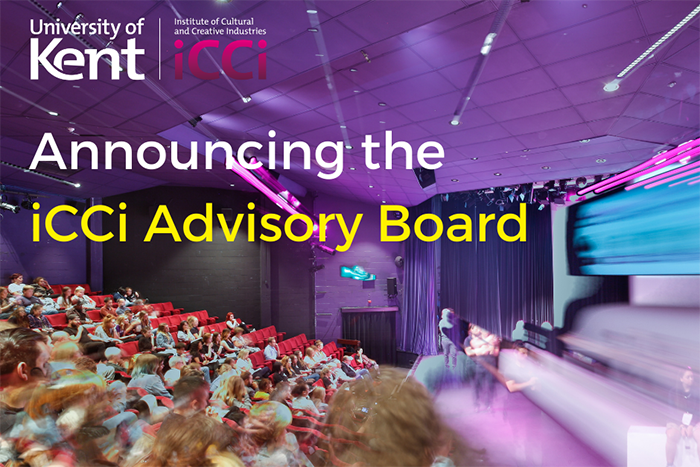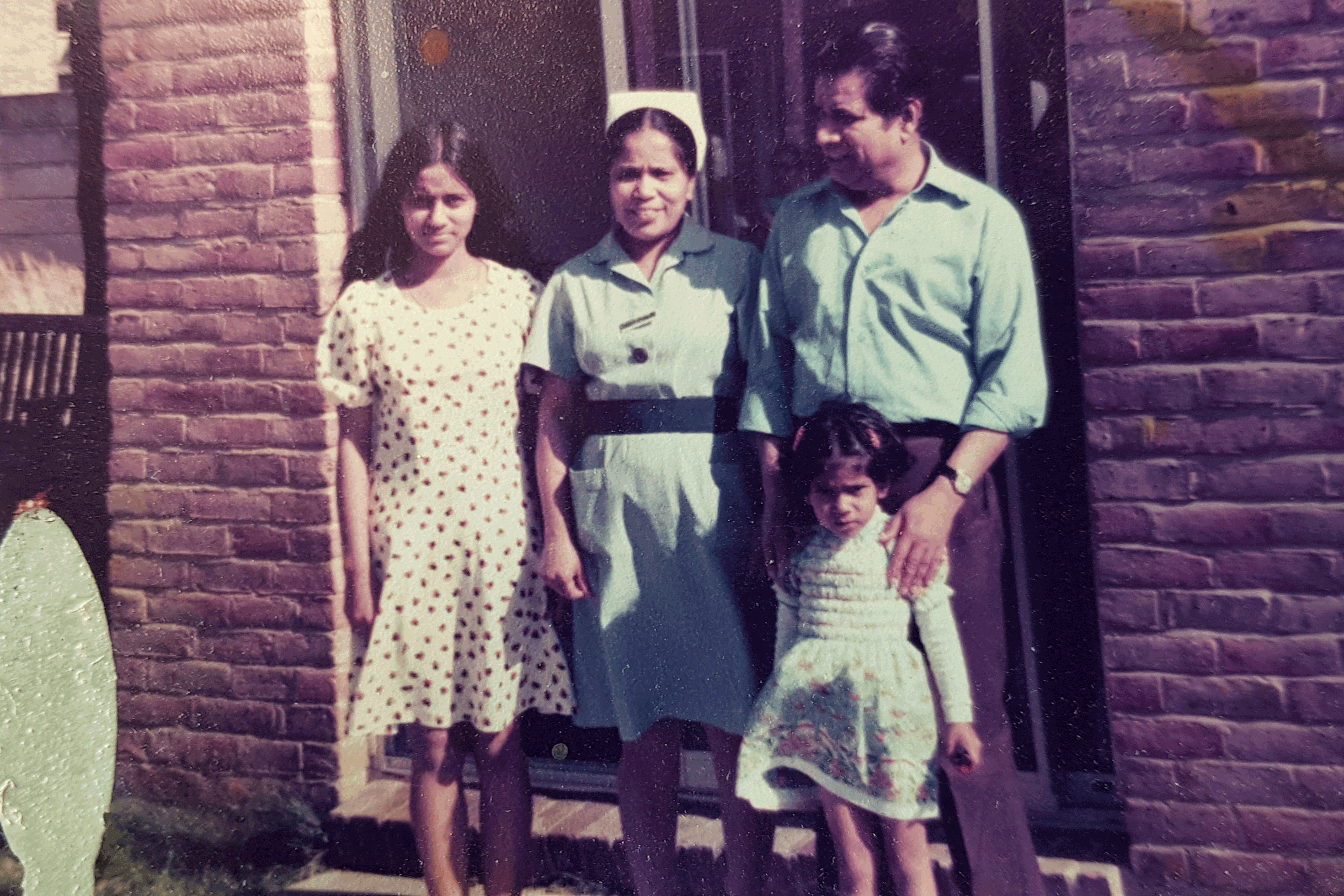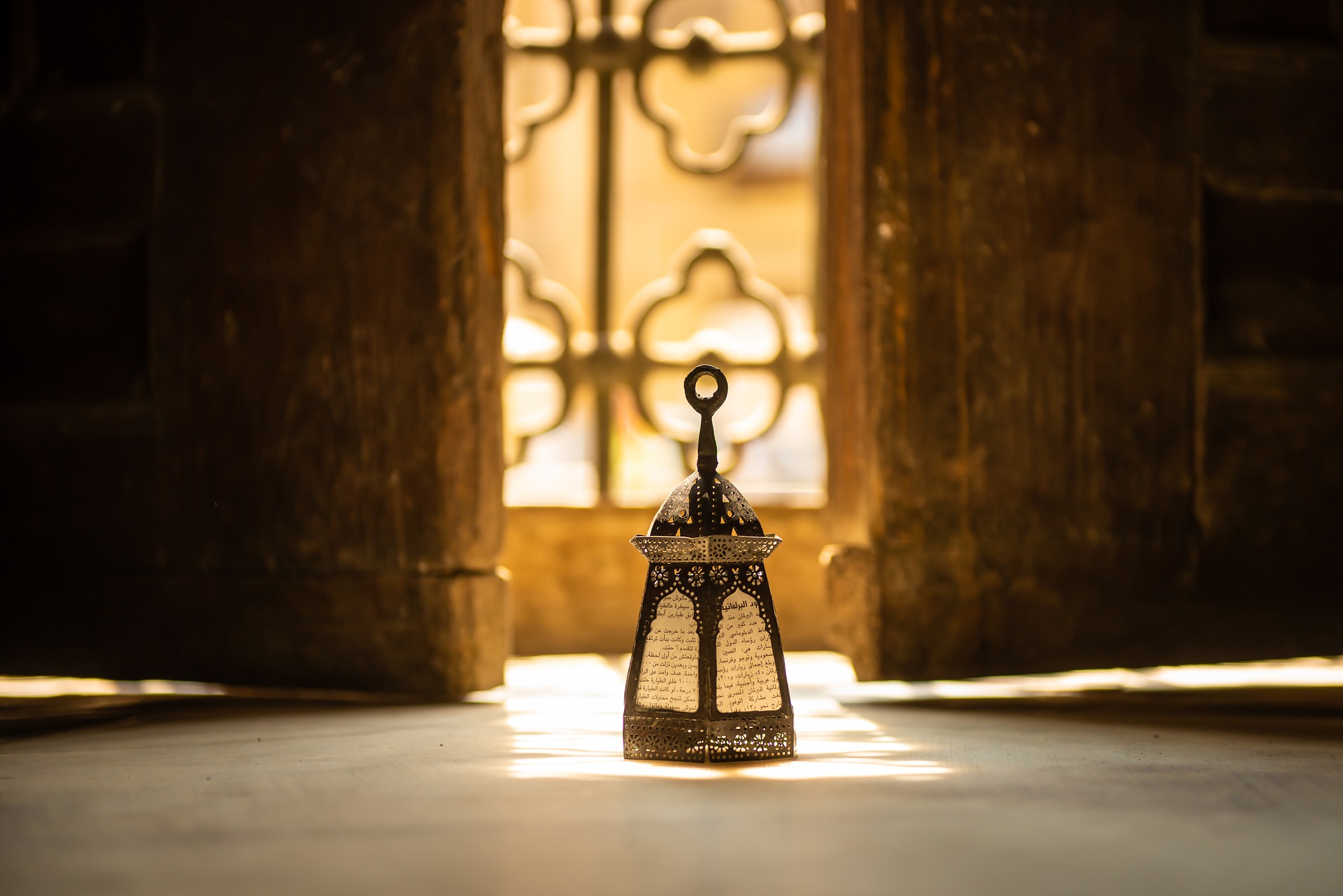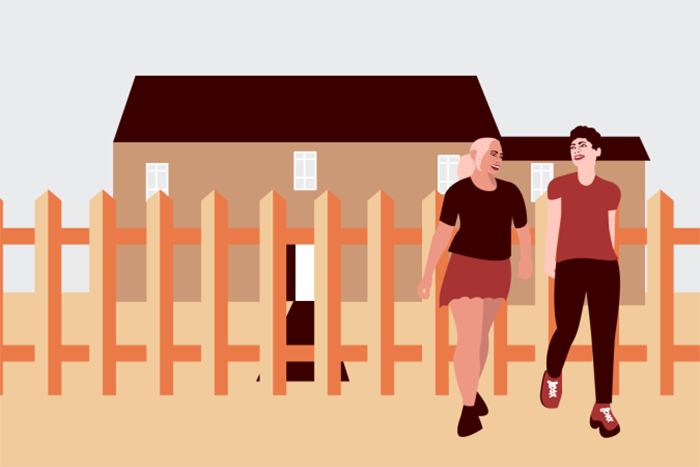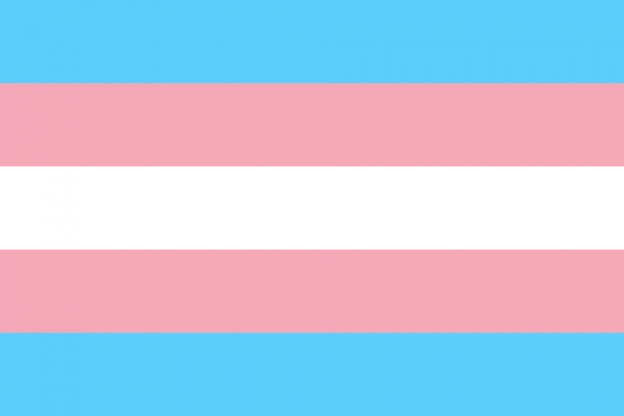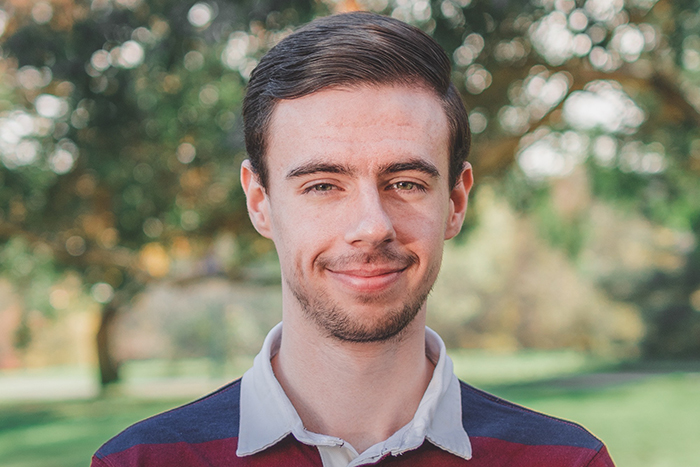The Institute of Cultural and Creative Industries (iCCi) is proud to announce the formation of our inaugural Advisory Board. It brings together a diverse range of experts from across the creative industries, including representatives from our ART31 programme and the student body here at Kent.
Launched in September 2021, iCCi provides an innovative new approach to creativity at Kent. It aims to bring together everything cultural and creative Kent does on and off campus – connecting the University’s nationally recognised arts programme with its internationally recognised research and teaching.
It also forges new relationships with the expanding range of creative businesses in Kent.
iCCi is already playing a key role in the region, as lead partner in Creative Estuary, a £4.3m Cultural Development Project running until 2023.
Ambitious new projects include The Docking Station, the conversion of a listed building at Chatham Historic Dockyard into a unique creative facility including a state-of-the-art immersive digital studio, co-working space and artist studios, due to open in 2025.
Professor Catherine Richardson, Director of iCCi says:
“I am really delighted to have in place a Board with experience, talent, authority and such a diverse range of interests from across the creative industries. I know that they will support and challenge us to make a hugely positive and lasting impact on the cultural sector in Kent and beyond.”
Announced on 31 March 2022, the board will hold their first formal meeting on 12 April 2022.
Board Members
Chair: Lizzie Hodgson
Lizzie is a consultant and strategist, founder of ThinkNation and Nile and Chair of RE: Generation 2031. She works within creative industries, global corporations, the public sector, government, and charities. She helps to identify purpose and vision, delivering impact and growth primarily through strategic communications.
Vice Chair: Mel Alcock
Mel is an experienced Chairman & Executive Director drawing upon experience garnered in Senior Executive roles at Fremantle, Disney, Sky, i-Crossing, and Curzon. Mel is currently Chairman of the British Board of Film Classification, Mentor at Ascension Ventures, Vice Chairman of Cement Fields and Owner of the Complete Circle Consultancy Ltd.
Aisha Dosanjh
Aisha is President of Kent Union, the student body for University of Kent. She studied Psychology at Kent, has been involved with a range of student societies, and as Uniion President is committed to working with students and enabling them to get involved with and lead campaigns on issues they are concerned about.
Ray Mia
An Immersive audio producer for Music, TV, Film & Audio Drama. Ray founded RECHORD.XYZ, is former Executive Vice President at UMG – the world’s largest music company and owner of Liverpool based record label JACARANDA RECORDS. A graduate of University of Kent, Ray is a supporter of creativity in the county, sitting on numerous boards including The Marlowe Theatre, The Thames Estuary Growth Board and Kent Music.
Conrad Murray
Conrad is Director at the BAC Beatbox Academy. He is a multi award-winning theatre-maker, writer, director, rapper, beatboxer, live looper and singer. He uses his Anglo-Indian working-class background to address issues such as class, race and heritage. He was listed as one of the Top 100 in The Stage newspaper’s annual industry list in 2021 and was named in The Observer’s top ten theatre shows of the year in 2020 for his work as musical director and composer on Pilot Theatre’s Crongton Knights.
Sonia Nayyar
Sonia Nayyar is the Project Manager for Cohesion Plus, a local diverse led arts organisation based in North Kent. Cohesion Plus is an Arts Council England recognised National Portfolio Organisation and delivers culturally diverse events and outdoor festivals across Kent. The aim of the organisation is to showcase culturally diverse arts and promote community cohesion, celebrating shared values.
Jo Nolan
Jo is Managing Director at Screen South, a Kent based Cultural Development Agency. She has extensive experience in independent film production, having developed her skills through Production Management, AD Department and Art Direction. Her contribution has been integral to the success of several award-winning talents from the UK independent film scene and she has delivered over 250 productions including features, award winning shorts and music promos.
Imogen Robertson
Imogen is a creative producer and consultant based in Medway and the South East. Having worked as a producer and general manager in theatre and the museum sector, Imogen returned to Medway, where she grew up, as Bid Director for Medway’s UK City of Culture bid. She has produced work for The National Trust, Madame Tussauds, Pussy Riot, Toyota and Stella Artois and has a particular interest in interactive and digitally innovative arts and work that engages audiences in contemporary issues and historic contexts in new ways.
Sacha Wares
Sacha Wares is a critically acclaimed theatre director, who has worked for more than twenty years at the forefront of British new writing. She is the founder of Trial and Error, a new creative studio producing drama and documentary using immersive technologies. She is associate artist at the Donmar Warehouse, innovation associate at English Touring Theatre and associate director at the National Theatre’s Immersive Storytelling Studio.
Nick Willis
Nick Willis is an artist and student who is passionate about arts opportunities for young people across Kent. He’s written and directed a short film with iCCi and BBC New Creatives, as well as currently working as a BFI Film Academy Young Programmer in London. Having been a part of ART31 and its Youth Board Generate for a number of years now, he is looking forward to assist iCCi in their exciting and ambitious plans to grow.
